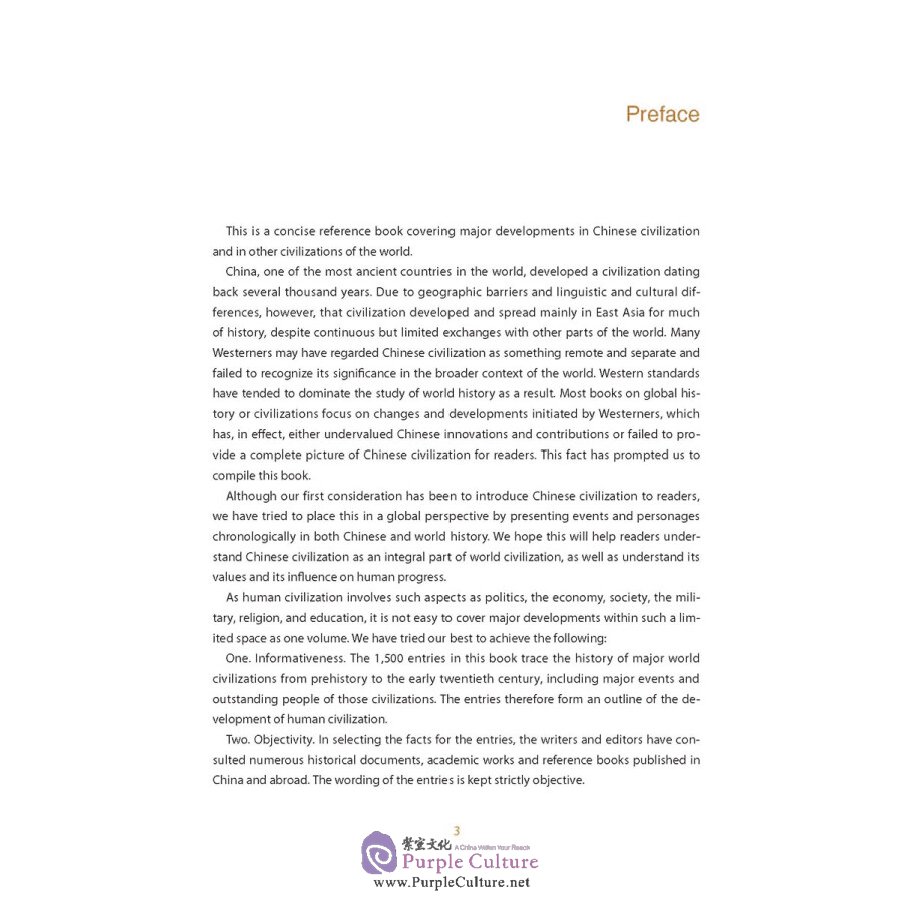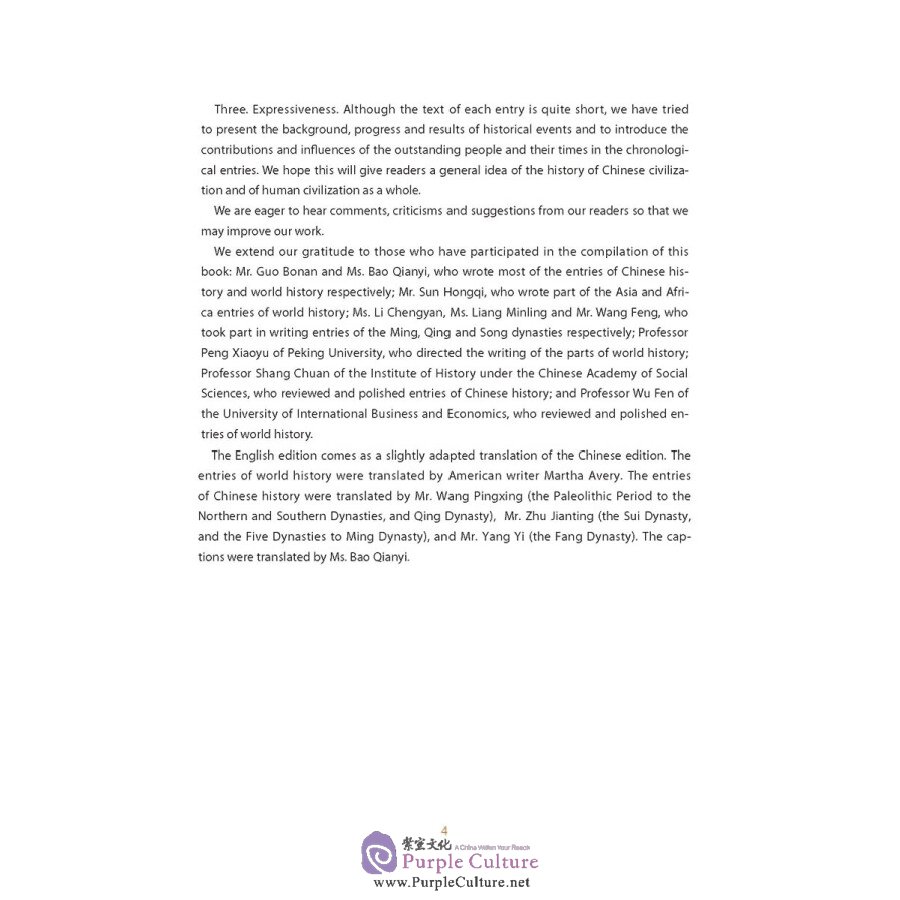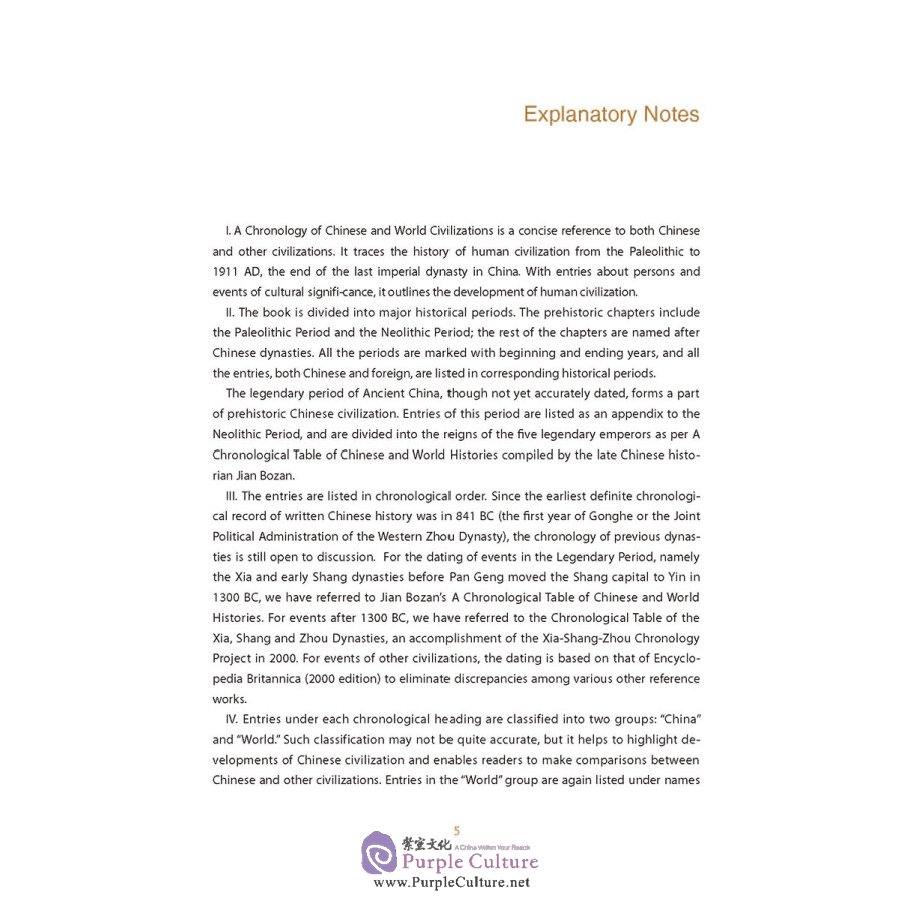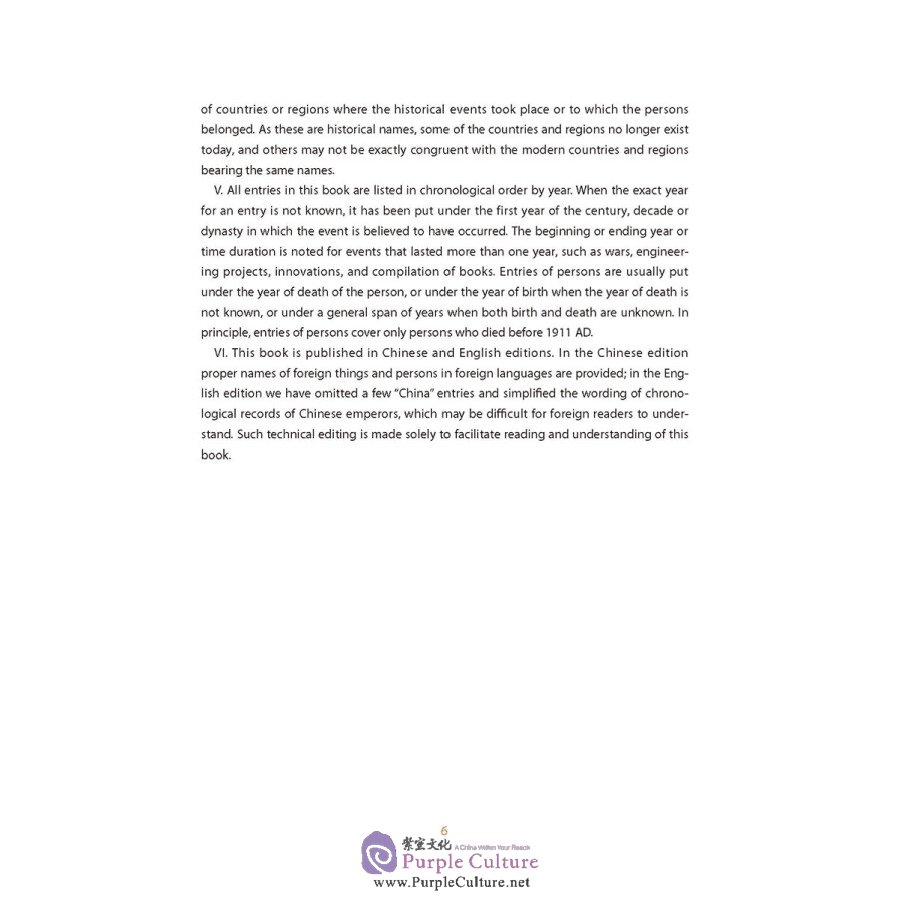Guo Bonan, a senior editor at the People’s China (in Japanese) monthly in Beijing. A researcher in the history of Chinese culture, he has authored and compiled a number of books on Chinese civilization, with some of them translated into English, French, German, and Japanese.
Bao Qianyi, received her Bachelor of Commerce and MA in English Literature from the University of International Business and Economics (UIBE). Upon graduation in 2000, she joined the Faculty of English in UIBE. She was trained as a conference interpreter at Directorate General for Interpretation of the European Commission. Returned to UIBE in 2004, she started to run a seminar course for the postgraduates on history of Europe.




As human civilization involves such aspects as politics, the economy, society, the military, religion, and education, it is not easy to cover major developments within such a limited space as one volume. We have tried our best to achieve the following:
One. Informativeness. The 1,500 entries in this book trace the history of major world civilizations from prehistory to the early twentieth century, including major events and outstanding people of those civilizations. The entries therefore form an outline of the development of human civilization.
Two. Objectivity. In selecting the facts for the entries, the writers and editors have consulted numerous historical documents, academic works and reference books published in China and abroad. The wording of the entries is kept strictly objective.
Three. Expressiveness. Although the text of each entry is quite short, we have tried to present the background, progress and results of historical events and to introduce the contributions and influences of the outstanding people and their times in the chronological entries. We hope this will give readers a general idea of the history of Chinese civilization and of human civilization as a whole.
This is a concise reference book covering major developments in Chinese civilization and in other civilizations of the world.
China, one of the most ancient countries in the world, developed a civilization dating back several thousand years. Due to geographic barriers and linguistic and cultural differences, however, that civilization developed and spread mainly in East Asia for much of history, despite continuous but limited exchanges with other parts of the world. Many Westerners may have regarded Chinese civilization as something remote and separate and failed to recognize its significance in the broader context of the world. Western standards have tended to dominate the study of world history as a result. Most books on global history or civilizations focus on changes and developments initiated by Westerners, which has, in effect, either undervalued Chinese innovations and contributions or failed to provide a complete picture of Chinese civilization for readers. This fact has prompted us to compile this book.
Although our first consideration has been to introduce Chinese civilization to readers, we have tried to place this in a global perspective by presenting events and personages chronologically in both Chinese and world history. We hope this will help readers understand Chinese civilization as an integral part of world civilization, as well as understand its values and its influence on human progress.